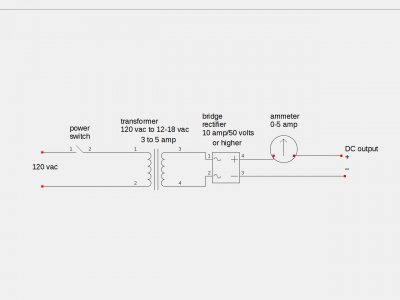I'm considering buying a power supply for electrolysis and was wondering if there are any recommendations. I would like to keep the cost under $50. This is one I was looking at LRS-350-12 https://www.amazon.com/LRS-350-12-S...9Y2xpY2tSZWRpcmVjdCZkb05vdExvZ0NsaWNrPXRydWU=.
I am admittedly over my head here so any thoughts are appreciated. The one question I have is the need for a power supply that has a built in ammeter - not sure if an ammeter is required for control of the electrolysis process.
I've already gone down the path of computer power supplies and converting a smart battery charger so let's keep it to something I can buy
Thanks
Rick
I am admittedly over my head here so any thoughts are appreciated. The one question I have is the need for a power supply that has a built in ammeter - not sure if an ammeter is required for control of the electrolysis process.
I've already gone down the path of computer power supplies and converting a smart battery charger so let's keep it to something I can buy
Thanks
Rick


